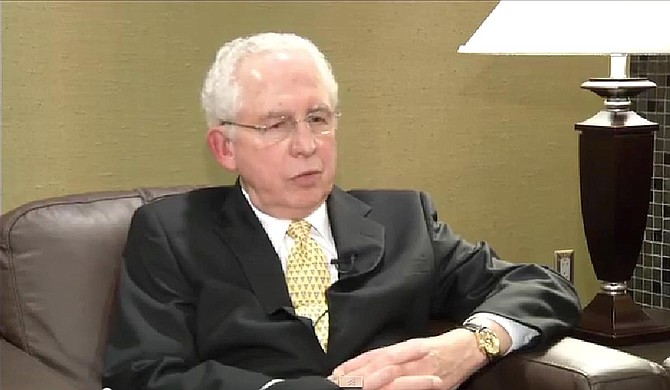Southeastern Conference Commissioner Mike Slive unexpectedly stepped down Friday, just minutes after announcing record revenue and a groundbreaking rule. Photo courtesy YouTube/Mizzou Football Channel
DESTIN, Fla. (AP) — Southeastern Conference Commissioner Mike Slive unexpectedly stepped down Friday, just minutes after announcing record revenue for the conference and a groundbreaking rule.
Slive had been scheduled to officially retire July 31, but decided to hand the reins of the powerful league to Greg Sankey, beginning Monday.
Slive will remain in an advisory role to the conference for the next two months—through the end of his contract—and has agreed to serve as a league consultant for four years.
"The outpouring of the love and support that's gone on for me over the last couple of weeks is really quite gratifying," said the 74-year-old Slive, who headed the SEC for 13 years. "It just seemed to me like this was the right time and the right place to make that transition. It's a good break point considering the issues that I worked on and the issues Greg will face."
It was a somewhat fitting move given everything Slive announced beforehand.
Thanks to the successful debut of the SEC Network as well as the lucrative College Football Playoff, the conference generated a NCAA-record $455.8 million in revenue in 2014-15. The league's revenue was $309.6 million last year.
That means the SEC will distribute $31.2 million to each of its 14 schools, a figure that does not include $19 million in bowl revenue.
The Big Ten held the previous record for NCAA revenue, generating $338.9 million last year.
"The ability to provide a significant distribution of revenue is more critical than ever for our institutions," said Slive, who was instrumental in creating the SEC Network and the four-team playoff.
The SEC also adopted a proposal that prohibits its schools from enrolling any student-athletes who have been subject to "serious misconduct" at their previous college institution. The league defined serious misconduct as "sexual assault, domestic violence or other forms of sexual violence."
No other conference has a similar conduct rule.
Georgia proposed the new legislation in the wake of Jonathan Taylor's troubles.
The Bulldogs dismissed Taylor last July after he was arrested on a charge of felony aggravated assault and family violence. Police said he struck his girlfriend with a closed fist and choked her during an argument at Taylor's dormitory room.
Taylor spent last fall at Copiah-Lincoln Community College in Mississippi and enrolled at Alabama in January, which raised eyebrows. The Tide dismissed him two months later after he was arrested again on domestic violence charges in Tuscaloosa.
"If there's a circumstance where significant university or athletics department disciplinary actions apply, that becomes a stopping point for a transfer," Sankey said. "That doesn't predict certain outcomes, doesn't engage in any more analysis at the point. I'm not going to jump down a set of scenarios. .... It's straightforward analysis.
"If you've got a university disciplinary action that's in play, that will be a stopping point. If there's a conclusion, then there's an opportunity for review but not any assurance that there would be a particular outcome."
Also of note Friday:
— The SEC significantly raised fines for rushing fields or courts to $50,000 for first-time offenders, then $100,000 and $250,000 for subsequent violations. The previous fines were $5,000 for first-time offenders and $10,000 and $25,000 for subsequent violations. The league also eliminated a three-year, reset rule.
"This is designed to be a deterrent. It's designed to change the culture about rushing the field," Slive said. "It's viewed by some as a tradition, but it's a tradition that runs into the question of health and safety of not only the fans themselves, but the coaches and players.
"We understand that this in and of itself isn't necessarily going to stop, but I think it will make people think about it. It sends a message that this is what the league wants. At the same time, we don't want security personnel to create injuries that we're trying to prevent."
— The SEC passed two proposals that should help create transparency in determining full cost of attendance figures. Schools are now required to provide an annual written report to the league identifying "other expenses related to cost of attendance." Schools also have to summarize variances for each student who is granted a financial increase in cost of attendance.
— The league approved a prostate cancer prevention awareness campaign in 2015 in honor of Slive, who was treated for a recurrence of prostate cancer last year. Each school will wear a blue helmet sticker for one game of its choosing.
"Needless to say, I was very moved by that," Slive said. "It was very touching."
Copyright Associated Press. All rights reserved. This material may not be published, broadcast, rewritten, or redistributed.



Comments
Use the comment form below to begin a discussion about this content.
comments powered by Disqus